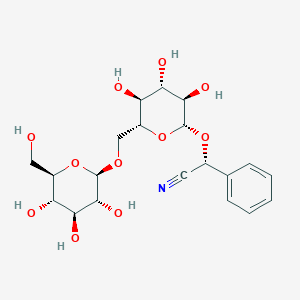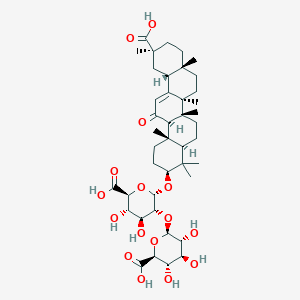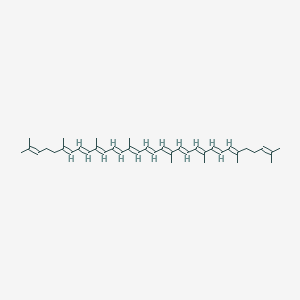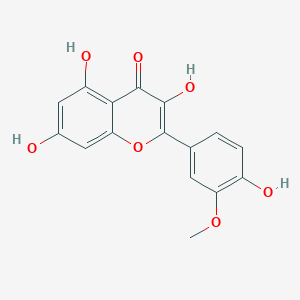Description
Amygdalin, commonly known as laetrile or vitamin B17, is a naturally occurring chemical found in a variety of plants such as bitter almonds, apricot kernels, and peach pits. It has been touted as a natural cancer treatment, although there is no scientific data to support its efficacy.
Amygdalin is metabolized in the body to hydrogen cyanide, which is poisonous in high concentrations. Amygdalin supporters say that it preferentially targets cancer cells while sparing healthy cells, although there is no scientific data to back up this claim.
Main Benefits of Amygdalin
- Source of Antioxidants: Amygdalin is known to possess antioxidant properties, which may help in combating oxidative stress in the body. Oxidative stress is linked to various chronic diseases and aging.
- Potential Anti-Cancer Properties: There has been some research suggesting that amygdalin may have anti-cancer effects. However, these claims are controversial and not widely accepted in the medical community due to the lack of robust clinical evidence.
- Pain Relief: Some studies suggest that amygdalin might have analgesic properties, potentially helping in pain management.
- Immune System Support: There is some evidence to suggest that amygdalin might play a role in boosting the immune system, though this is not fully established.
Applications of Amygdalin
- Traditional Medicine: In various traditional medicine practices, amygdalin has been used for its purported health benefits, especially in Chinese medicine.
- Dietary Supplements: Amygdalin is available in the form of dietary supplements. These are often marketed for various health claims, although consumers should exercise caution and consult healthcare professionals due to potential risks.
- Research Purposes: Amygdalin continues to be a subject of research, particularly in exploring its potential anti-cancer properties and effects on human health.
Important Considerations
- Toxicity Risks: Amygdalin can be converted into cyanide in the body, which is toxic. This raises significant safety concerns, especially when consumed in high amounts or as an unregulated supplement.
- Regulatory Status: Due to its potential risks, the use of amygdalin, especially as a cancer treatment, is not approved by many health authorities, including the U.S. Food and Drug Administration (FDA).
- Need for More Research: The benefits of amygdalin are still under investigation, and more rigorous scientific research is needed to conclusively determine its efficacy and safety.





